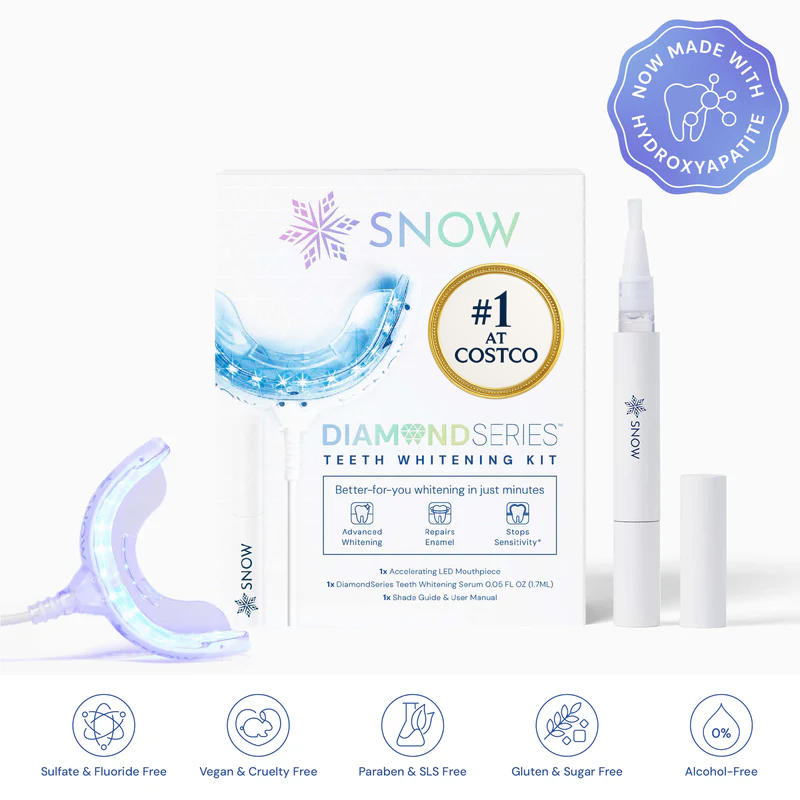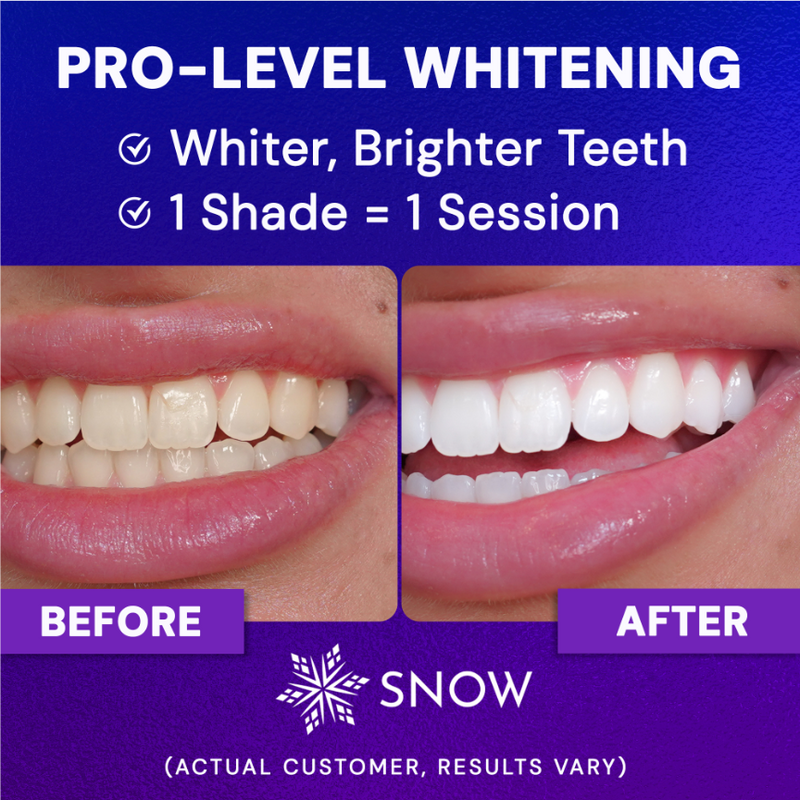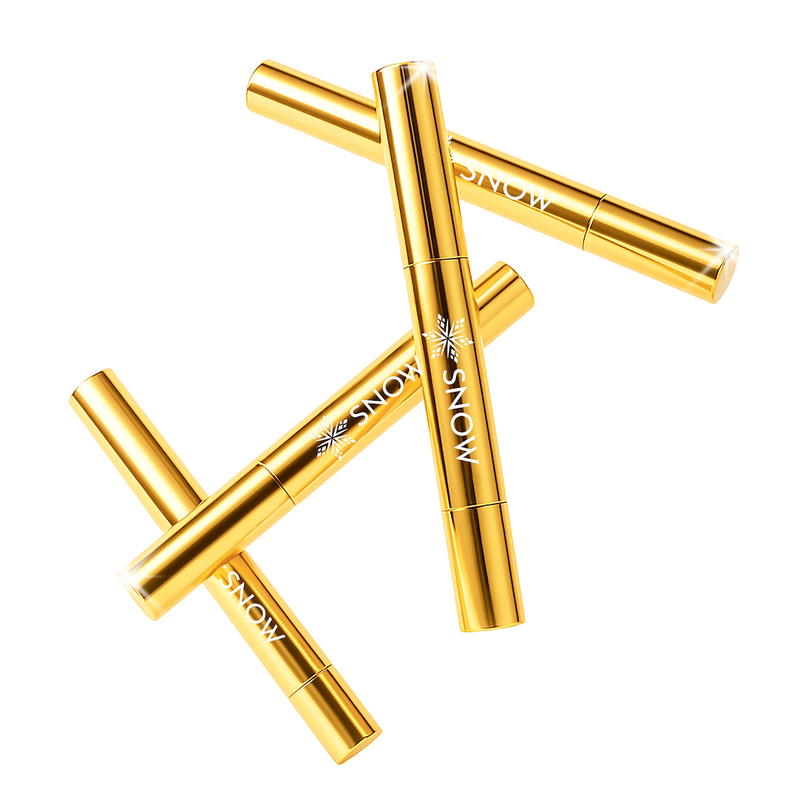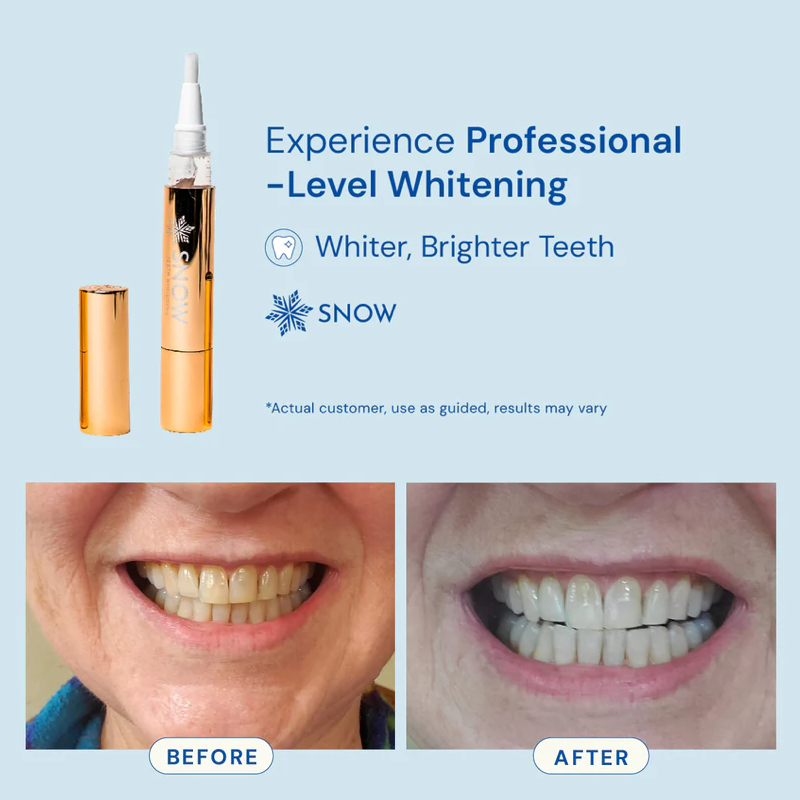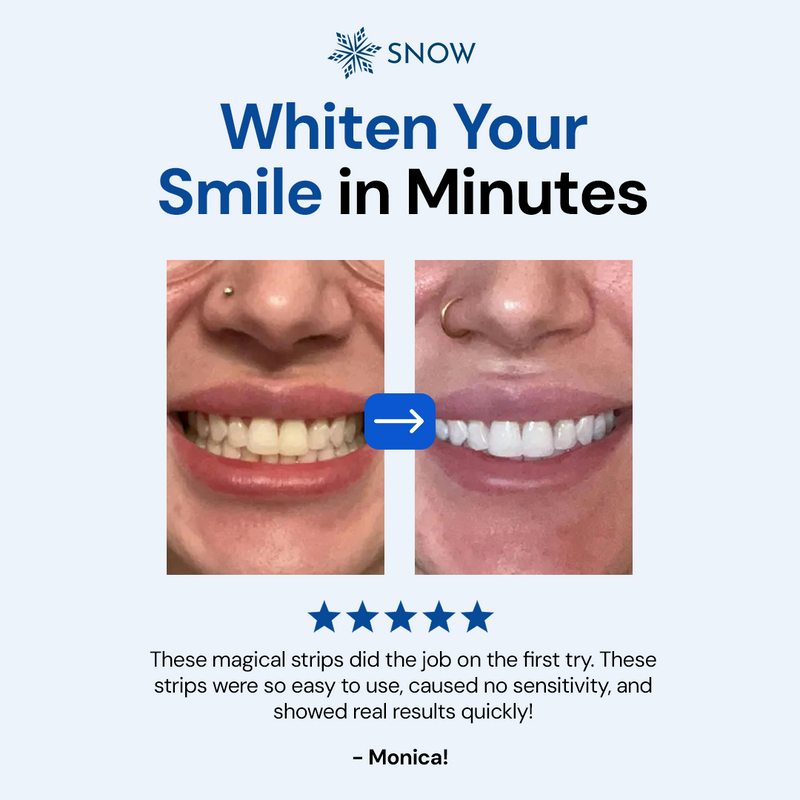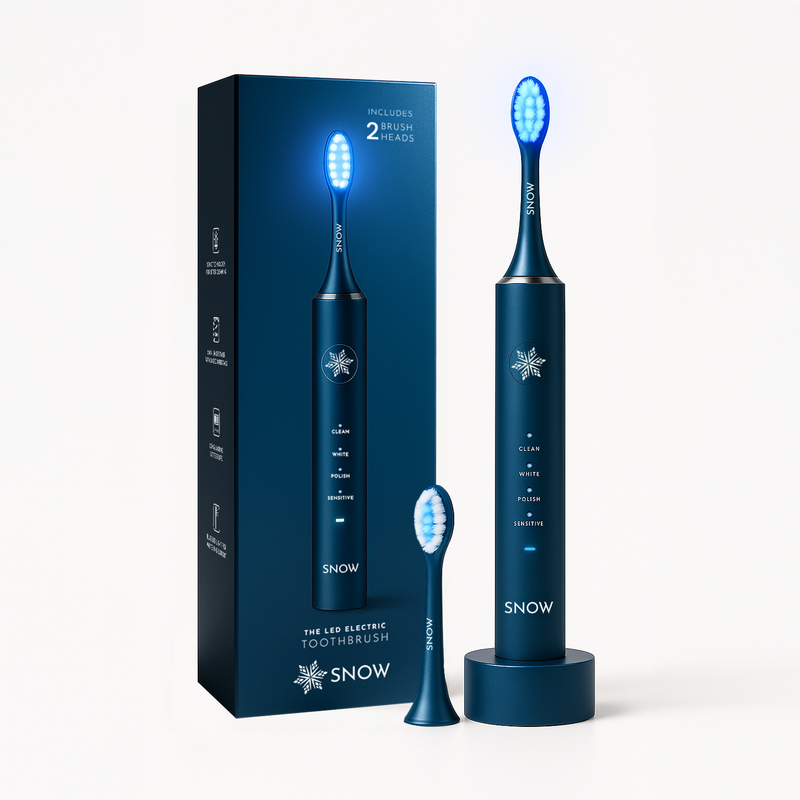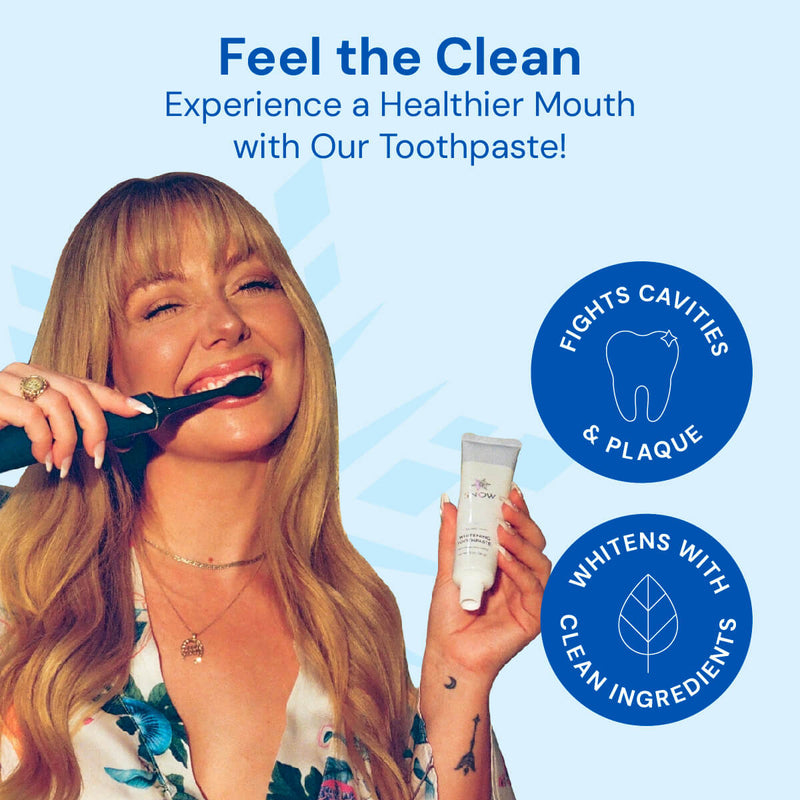If you’re wondering whether electric toothbrushes are covered by your FSA (Flexible Spending Account), the short answer is usually no. The IRS typically classifies them as personal care items, not eligible medical expenses.
But there’s a catch: if your dentist recommends one for a specific dental condition, and you have the right documentation, you may be able to get reimbursed.
In this guide, we’ll walk you through how FSA eligibility works, when exceptions apply, what paperwork you’ll need, like a Letter of Medical Necessity, and how to make the most of your pre-tax dollars when it comes to oral care.
Key Takeaways
-
Electric toothbrushes are generally not FSA eligible as they are classified as personal care items rather than medical necessities according to IRS guidelines.
-
Exceptions exist for FSA eligibility if a dentist recommends an electric toothbrush for specific dental conditions, necessitating a Letter of Medical Necessity.
-
Legislation changes, such as the proposed H.R. 8599 bill, may expand FSA eligibility for dental hygiene products in the future, allowing reimbursement without requiring medical documentation.
Understanding FSA Eligibility for Electric Toothbrushes
If you're wondering whether electric toothbrushes are covered by your Flexible Spending Account (FSA), the answer is usually no.
The FSA eligibility of electric toothbrushes depends on your plan and whether it's considered a "medical expense." Check your plan's specific guidelines; many plans do cover them, particularly if prescribed by a dentist for medical reasons.
According to the IRS, electric toothbrushes are categorized as general personal care items, not medical necessities. That means they typically don’t qualify as eligible expenses unless very specific conditions are met (which we’ll cover later in the article).
The IRS guidelines say products must be used primarily to treat or prevent a medical issue, not just support day-to-day oral hygiene. Since toothbrushes are commonly used for general maintenance of teeth, they don’t meet the requirement on their own. This rule applies across the board, including FSAs, HSAs, and HRAs.
To be safe, always review your plan’s fine print and verify with your FSA provider before making a purchase. Even though electric toothbrushes are usually ineligible, plan specifics can vary.
Understanding how FSAs work can help you avoid denied claims. Contributions come from pre-tax pay, and the funds must be used for covered medical expenses, like checkups, prescriptions, and dental treatments. But items like braces, Invisalign, and electric toothbrushes may need extra documentation or be excluded entirely.
For now, electric toothbrushes remain off most FSA-approved product lists unless you have a qualifying medical need.
Make sure to keep receipts and any supporting documents in case you need to show how your purchase relates to a medical condition.
Exceptions to the Rule: When Electric Toothbrushes Can Be FSA Eligible
While electric toothbrushes are usually not FSA-approved, some exceptions exist.
In certain cases, they can become typically eligible if a dentist recommends them for treating a diagnosed dental condition.
For instance, if you’re dealing with gum disease, receding gums, or severe plaque buildup, and your dentist's recommendation includes switching to an electric toothbrush, that may qualify the expense for reimbursement. In this case, a Letter of Medical Necessity is required to document the condition and treatment plan.
Even with proper documentation, you’ll still need approval from your plan administrator. They will verify whether the purchase aligns with your FSA plan rules. Keep in mind that not all health savings accounts (HSAs) or high deductible health plans offer the same flexibility.
To avoid surprises, always use your pre-tax dollars wisely and confirm eligibility before making a purchase.
The Importance of a Letter of Medical Necessity
A Letter of Medical Necessity (LMN) is a formal document required when an item, like an electric toothbrush, isn’t automatically FSA eligible but is recommended by a healthcare provider.
The letter should include:
-
Patient name and information
-
Diagnosis (e.g., gum disease or receding gums)
-
The dentist’s recommendation and treatment rationale
-
Duration of recommended use
-
Dentist or healthcare provider’s signature and contact information
This letter proves the purchase is for medical treatment and not just general hygiene. To maximize your chance of reimbursement, pair your LMN with receipts, and any other documentation your plan administrator might request.
Using pre-tax dollars for qualified dental care expenses can save money, but clear, complete documentation is key to getting reimbursed. Make sure to submit your claim before the FSA grace period (if your plan offers one) ends.
Common Medical Conditions That Justify Electric Toothbrush Use
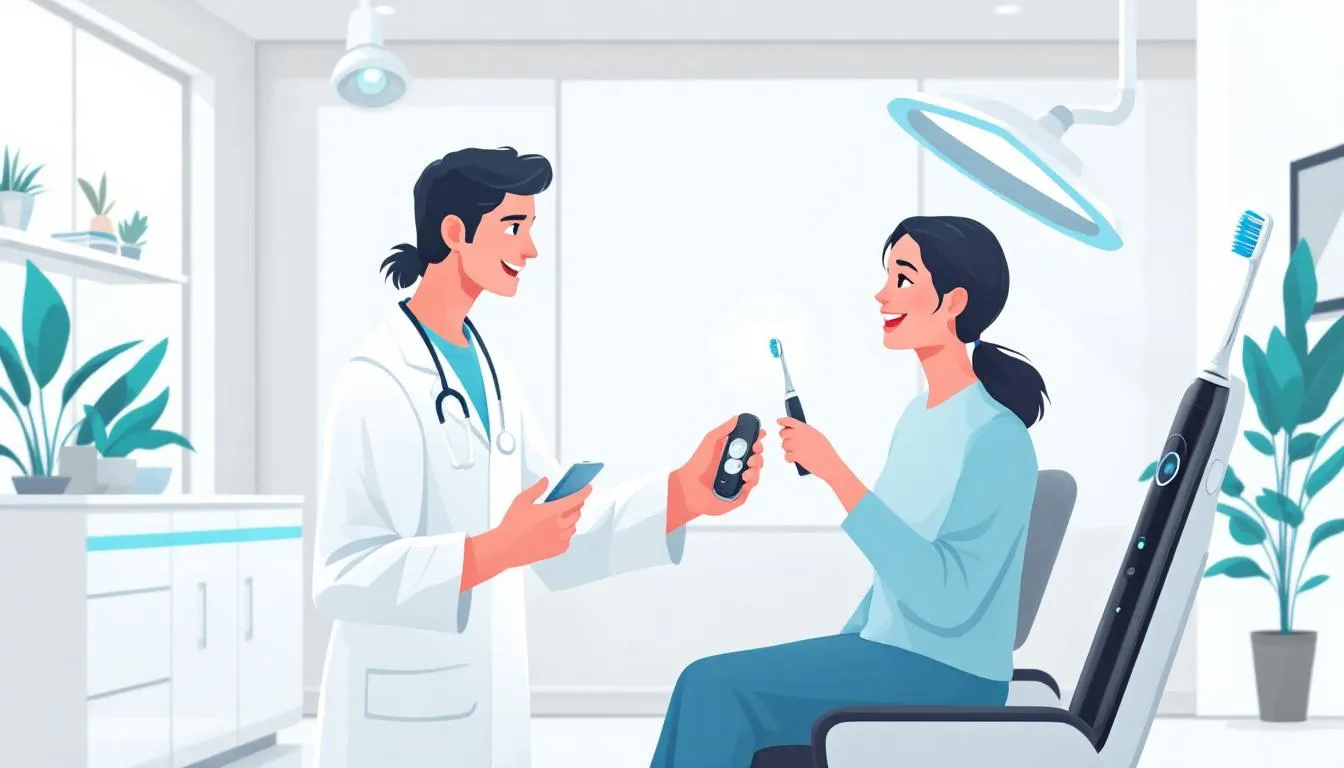
Electric toothbrushes may become FSA-eligible when used to address specific medical conditions. Below are common cases where dentists may recommend them as part of treatment:
-
Gum inflammation and bleeding: Dentists often recommend electric toothbrushes for patients with sensitive gums, as they provide more effective and gentle cleaning than manual options.
-
Severe plaque buildup: If you struggle with maintaining plaque control, sonic toothbrushes can significantly reduce buildup and improve oral hygiene.
-
Receding gums: Exposed roots due to receding gums require gentler but thorough brushing. Electric toothbrushes help prevent gingivitis and further recession.
-
Braces and orthodontic appliances: Braces make thorough brushing more difficult. Electric toothbrushes offer better reach and efficiency in cleaning around brackets and wires.
-
Manual dexterity limitations (e.g., arthritis): Individuals with limited hand movement or strength often find electric toothbrushes easier to use, making them a practical and medically necessary option.
Adding these details to a Letter of Medical Necessity can help justify your purchase for FSA reimbursement.
Steps to Obtain FSA Reimbursement for Electric Toothbrushes
Want to use your FSA to cover the cost of an electric toothbrush? Here’s how to do it right:
-
Check with your FSA provider: Before you buy, contact your FSA administrator to understand what’s required. FSAs work differently depending on the plan, so this step helps avoid issues later.
-
Verify eligibility: Confirm that your purchase qualifies for reimbursement, especially if it's tied to a dentist's recommendation.
-
Pay and keep your receipts: Once approved, pay for the toothbrush (using FSA or personal funds) and save all receipts. You’ll need them for completing your reimbursement claim.
-
Get a Letter of Medical Necessity: Ask your dentist to provide a letter stating the medical reason for the toothbrush. This is key for both FSA and HSA claims.
-
Submit your documents: Send the letter and receipts to your FSA administrator to request reimbursement.
Legislative Changes Impacting FSA Eligibility for Oral Care Products
Legislation is now in motion that could make it easier to use FSA and HSA funds for everyday dental products like electric toothbrushes and other healthcare expenses.
Currently, electric toothbrushes and other oral hygiene tools are classified as general health items, not “qualified medical expenses” under IRS rules. That means they're not reimbursable unless you have a Letter of Medical Necessity. But this could change.
The H.R. 8599 bill, also known as the Oral Health Products Inclusion Act, was reintroduced in February 2025. If passed, it would expand FSA and HSA eligibility to include manual and electric toothbrushes, flossers, anti-cavity toothpaste, and other essential oral care products, without needing a dentist's note.
Why This Matters
-
Nearly 70 million Americans use FSAs or HSAs to save money on health expenses.
-
Yet, most dental hygiene tools are not covered—even though tooth decay is one of the most common chronic diseases, according to the CDC.
-
46% of U.S. adults over age 30 show signs of gum disease, which is linked to serious health issues like diabetes, Alzheimer’s, and heart disease.
-
Americans miss 34 million hours of school and lose $46 billion in workplace productivity each year due to oral health problems.
-
Expanding FSA/HSA coverage could help low-income adults and rural populations, who face some of the worst oral health outcomes.
This legislation builds on a 2020 bipartisan law that reinstated eligibility for over-the-counter (OTC) medications and feminine products—proving that flexible benefit plans can evolve to reflect everyday healthcare needs.
What You Could Gain
If passed, this bill would:
-
Let you use pre-tax dollars to purchase oral care products without needing a dentist's recommendation.
-
Promote daily preventive care, which could save individuals with chronic conditions up to $1,700 annually in medical costs.
-
Empower more Americans to take charge of their oral hygiene with affordable, accessible tools.
Bottom line: If H.R. 8599 becomes law, everyday oral care could become a qualified medical expense. That means easier access to better tools, less red tape, and real savings for your wallet and your health.
Navigating Insurance Plan Variations
FSA coverage for electric toothbrushes varies by plan. Some providers, like Cigna, may approve reimbursement with a dentist’s note, while others don’t cover it at all, regardless of medical need.
To stay on the safe side, check your plan details and talk to your FSA administrator before you buy. Choosing in-network dental providers can also lower your overall costs.
For easier reimbursement, keep all important documents:
-
Receipts
-
Letter of Medical Necessity (LMN)
-
FSA-related emails or forms
Staying organized helps you avoid delays and make the most of your FSA benefits.
Maximizing Your FSA for Dental Health
To maximize your FSA for dental health, consider the following:
-
Engage in strategic planning and meticulous documentation.
-
Contributing to an FSA allows you to allocate pre-tax dollars directly from your paycheck to cover eligible dental health expenses, maximizing your savings.
-
Schedule regular dental check-ups to catch issues early, reducing potential higher costs later.
-
Take advantage of check-ups that are typically FSA-eligible to help maintain oral health.
Keep detailed records of all dental treatments and insurance communications to hold security. This practice helps resolve any disputes regarding claims and ensures you have all necessary documentation readily available to respond. Please note that maintaining these records is essential.
Use your FSA funds effectively by understanding covered expenses and ensuring compliance with all requirements.
Final Thoughts
Electric toothbrushes aren’t usually FSA eligible—but with the right documentation, exceptions exist. Staying informed, tracking expenses, and consulting your dentist can help you get the most from your FSA while keeping your smile healthy.
Ready to upgrade your routine? Try the SNOW® LED Whitening Electric Toothbrush, it whitens as you brush and gives your teeth a dentist-level clean, all from home.
Frequently Asked Questions
Are electric toothbrushes generally FSA eligible?
Electric toothbrushes are generally not FSA eligible since they are regarded as general health products. Therefore, it is advisable to verify specific coverage with your FSA provider.
What should a Letter of Medical Necessity include?
A Letter of Medical Necessity must include essential patient information, a clear medical diagnosis, the recommended treatment along with its duration, and the healthcare provider's details and signature. This comprehensive approach ensures clarity and supports the patient's needs effectively.
Are there any legislative changes that might impact FSA eligibility for electric toothbrushes?
There is a potential legislative change with H.R. 8599, which may expand FSA eligibility to include electric toothbrushes along with other dental hygiene products, eliminating the need for a Letter of Medical Necessity. If passed, this could significantly enhance access to these essential items for consumers.















































